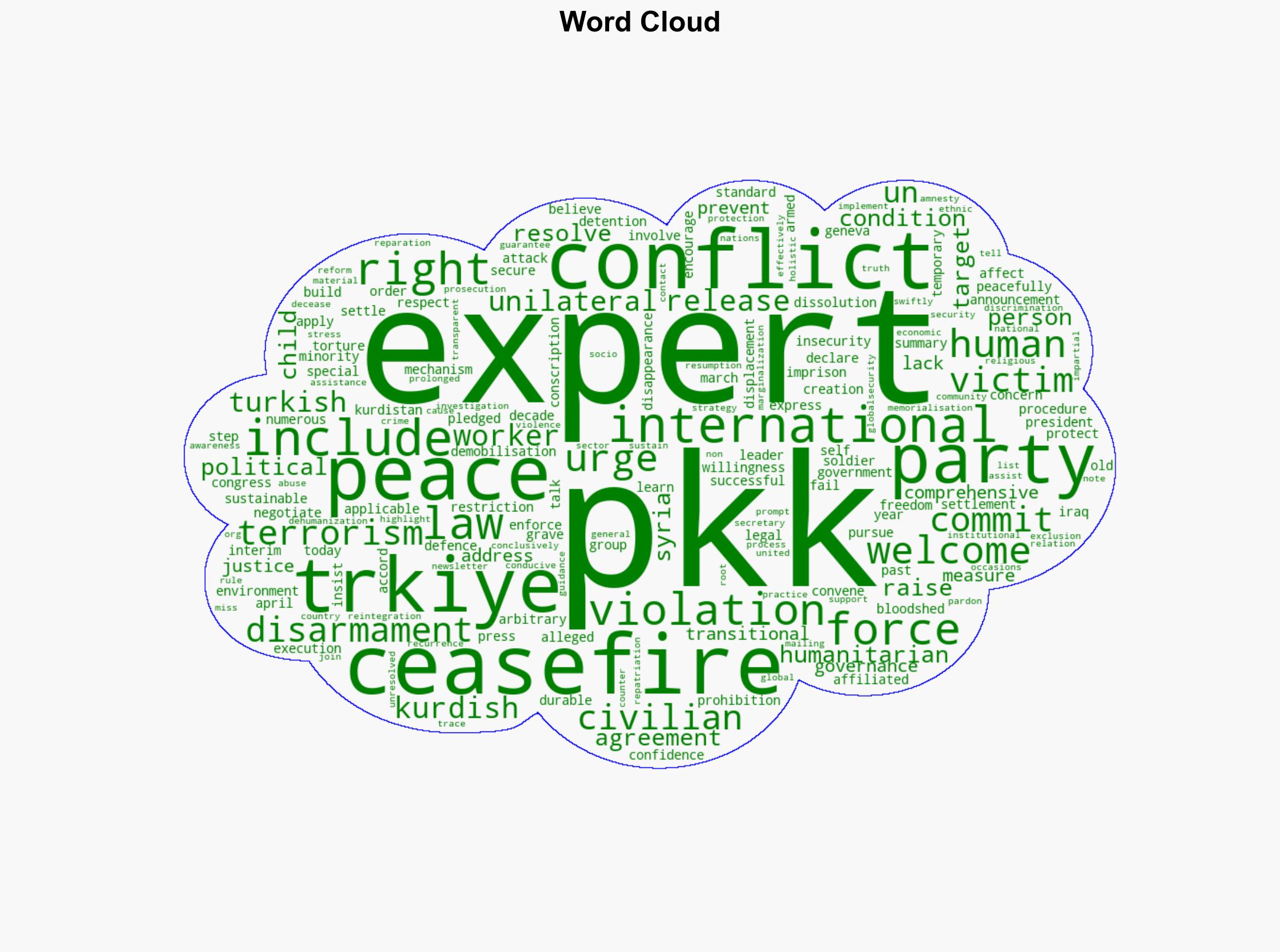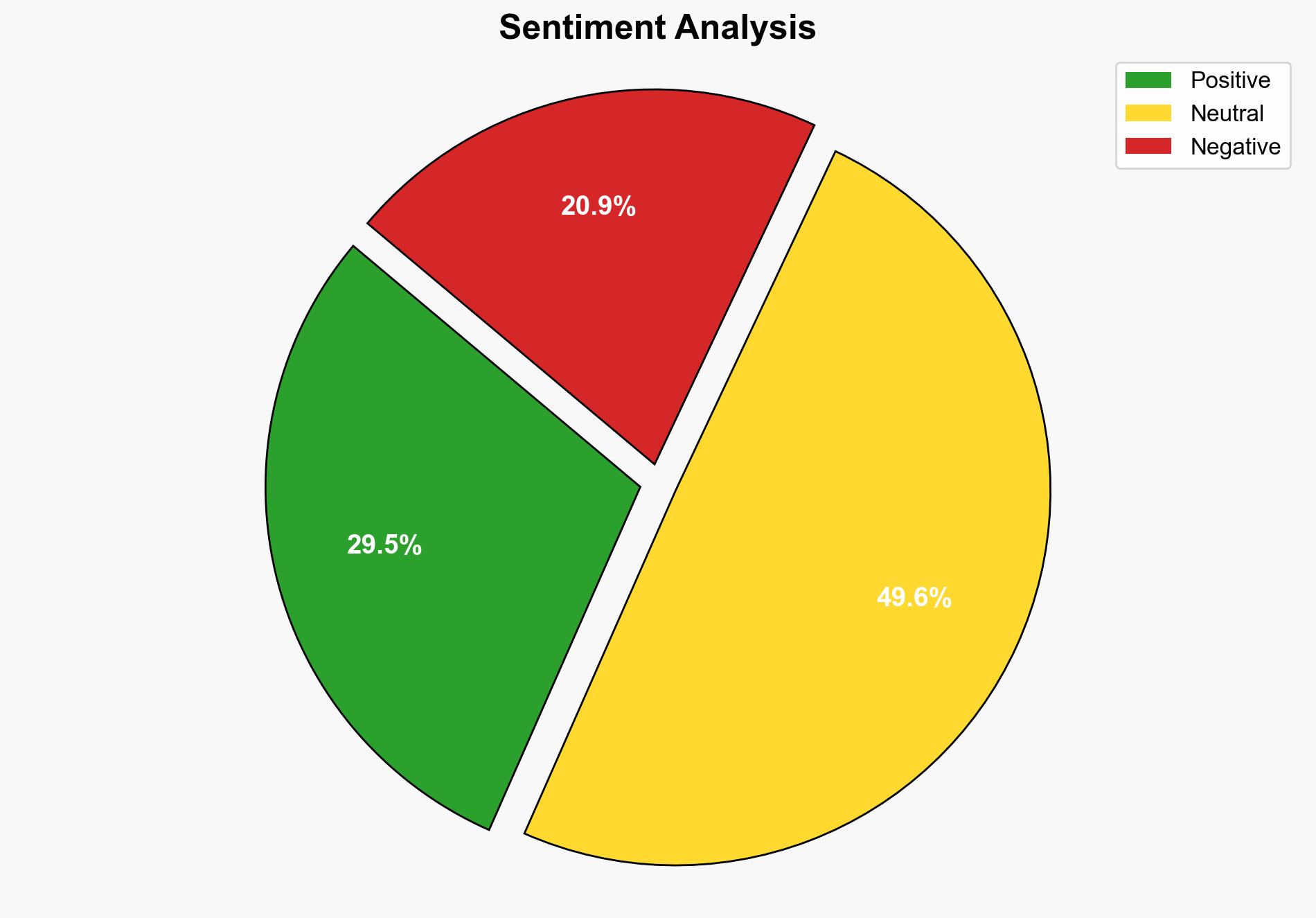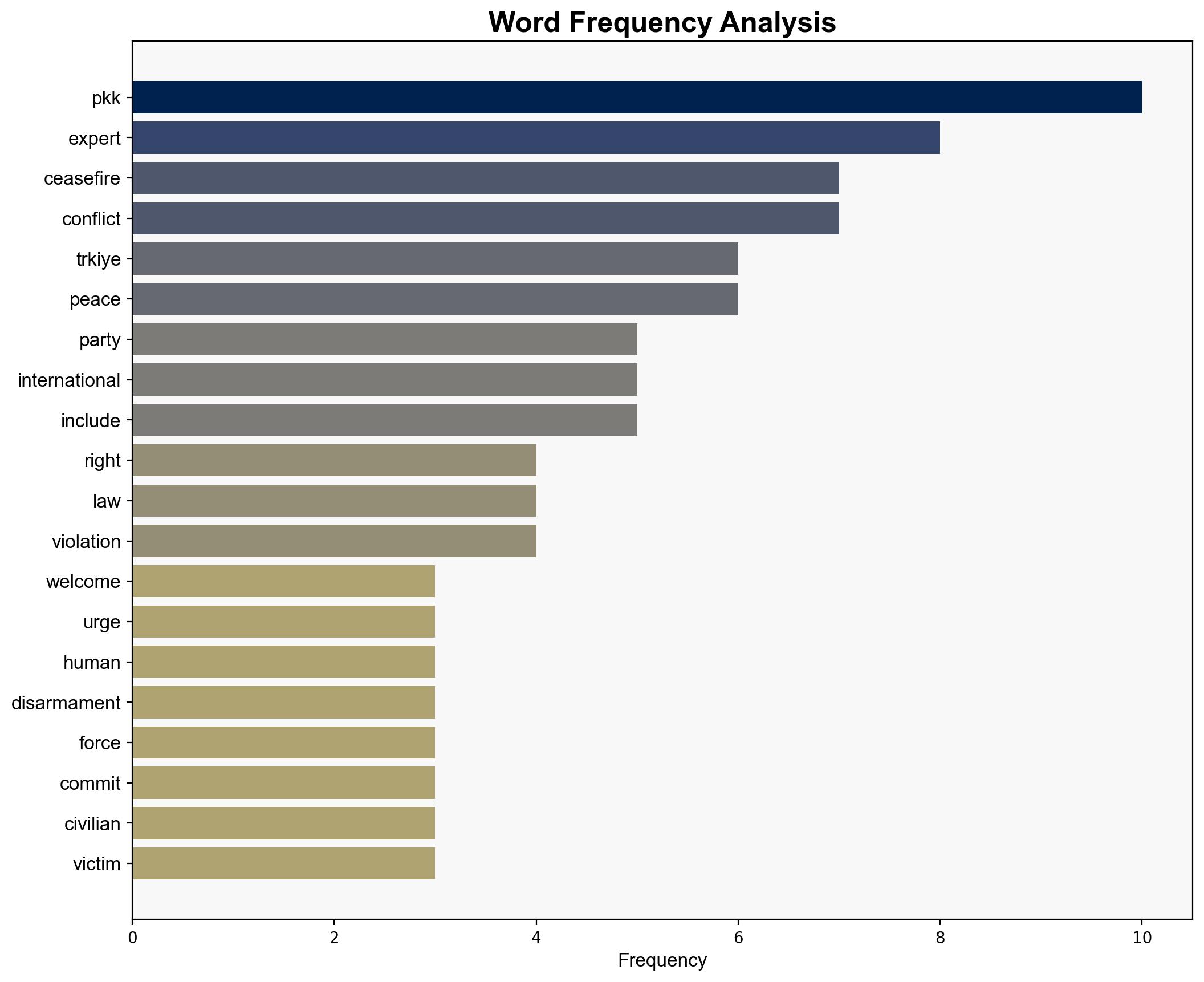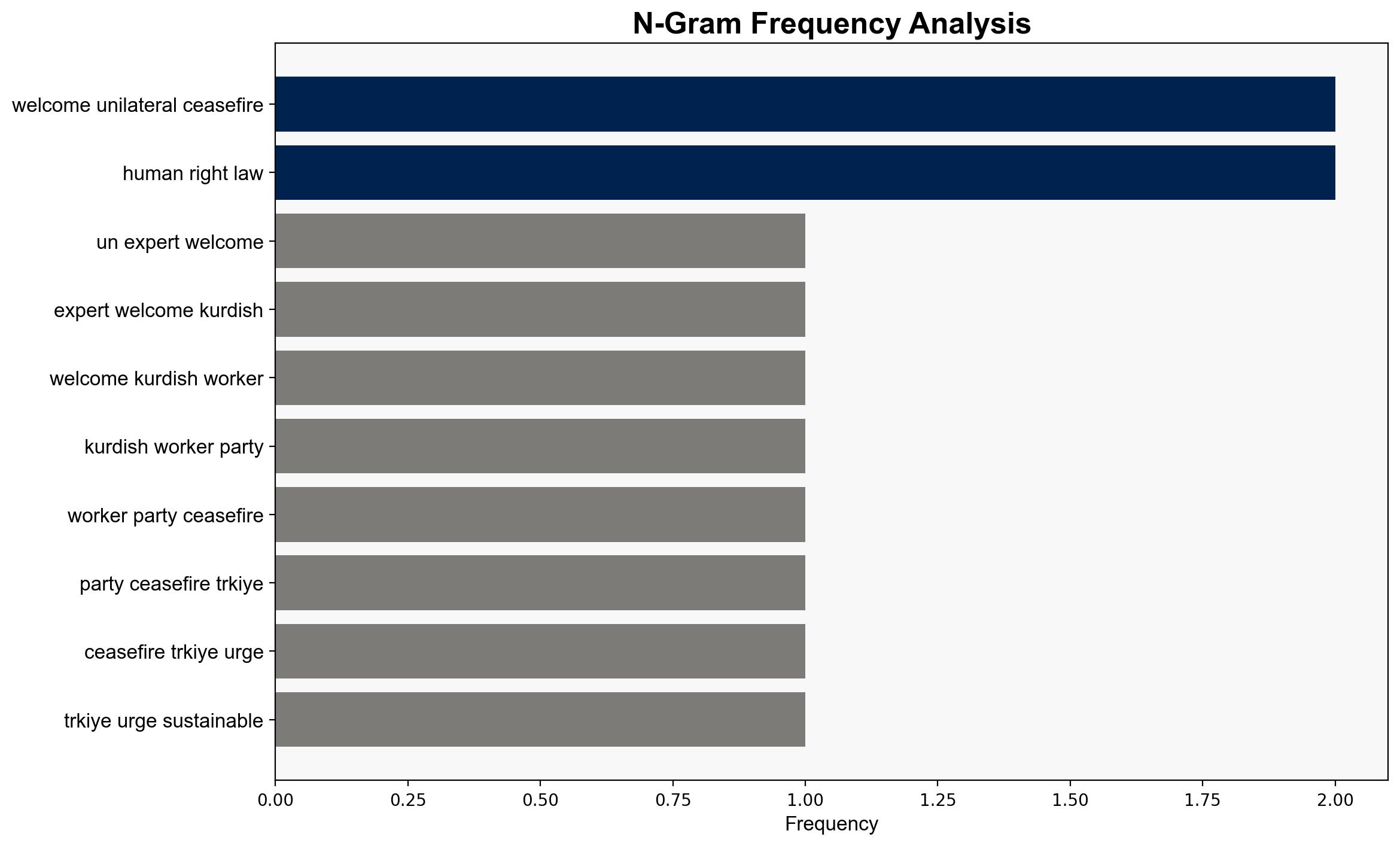UN experts welcome Kurdish Workers’ Party ceasefire with Trkiye and urge a just and sustainable peace – Globalsecurity.org
Published on: 2025-04-12
Intelligence Report: UN experts welcome Kurdish Workers’ Party ceasefire with Trkiye and urge a just and sustainable peace – Globalsecurity.org
1. BLUF (Bottom Line Up Front)
The Kurdistan Workers’ Party (PKK) has declared a unilateral ceasefire with Türkiye, marking a potential turning point in a conflict spanning over four decades. UN experts have urged both parties to engage in peaceful negotiations and adhere to international humanitarian and human rights laws. The Turkish President has acknowledged the ceasefire but demands immediate PKK disarmament. Despite the ceasefire, Türkiye has conducted military operations against alleged PKK affiliates in Iraq and Syria, raising international legal concerns. The situation remains volatile, with Kurdish forces in Syria not recognizing the ceasefire. A sustainable peace process requires comprehensive measures addressing disarmament, justice, and governance reform.
2. Detailed Analysis
The following structured analytic techniques have been applied for this analysis:
General Analysis
The PKK’s ceasefire is a strategic move to initiate peace talks, contingent on Türkiye’s reciprocal actions and the release of its leader. The Turkish military’s continued operations against PKK affiliates complicate the peace process, potentially undermining trust. Historical patterns of failed ceasefires highlight the necessity for robust international mediation and adherence to peace-building frameworks. The conflict’s humanitarian toll underscores the urgency for a resolution that prioritizes civilian protection and addresses past violations.
3. Implications and Strategic Risks
The ongoing conflict poses significant risks to regional stability, potentially exacerbating tensions in Iraq and Syria. Türkiye’s military actions could lead to international diplomatic challenges, particularly regarding the use of force. Economically, prolonged instability may deter investment and development in affected regions. The humanitarian impact remains severe, with continued risks of civilian casualties and displacement.
4. Recommendations and Outlook
Recommendations:
- Encourage international mediation to facilitate dialogue between the PKK and Türkiye.
- Implement confidence-building measures, including a mutual ceasefire and prisoner exchanges.
- Promote comprehensive transitional justice processes to address past human rights violations.
- Support governance reforms to enhance minority rights and political freedoms.
Outlook:
Best-case scenario: Successful peace negotiations lead to a comprehensive agreement, reducing regional tensions and fostering economic growth.
Worst-case scenario: Continued military operations and failed negotiations escalate the conflict, increasing regional instability and humanitarian crises.
Most likely scenario: Protracted negotiations with intermittent violence, requiring sustained international engagement to achieve a lasting resolution.
5. Key Individuals and Entities
The report mentions significant individuals and organizations, including the PKK, the Turkish President, and UN experts, without providing any roles or affiliations. These entities play crucial roles in the ongoing conflict and potential peace process.




